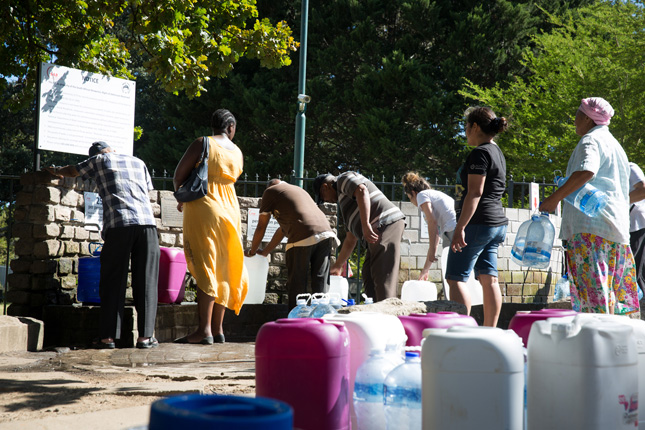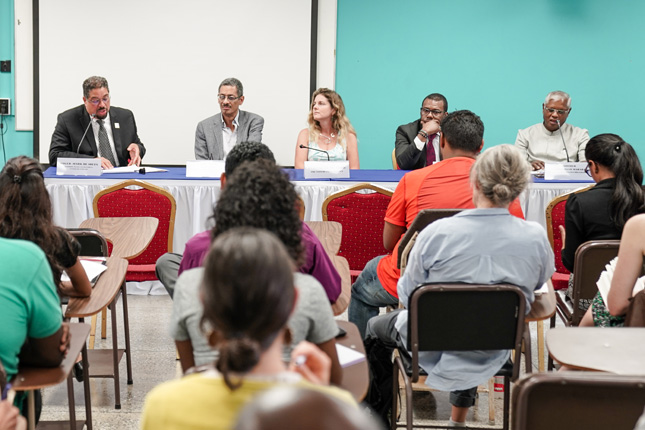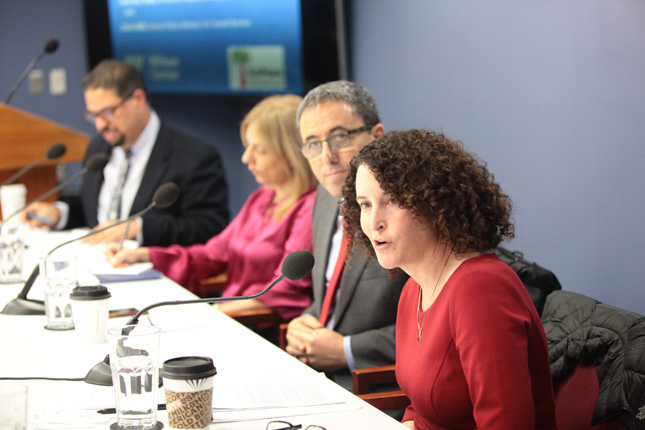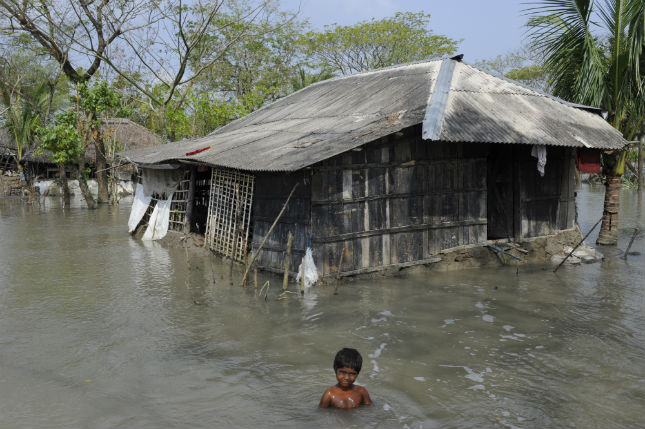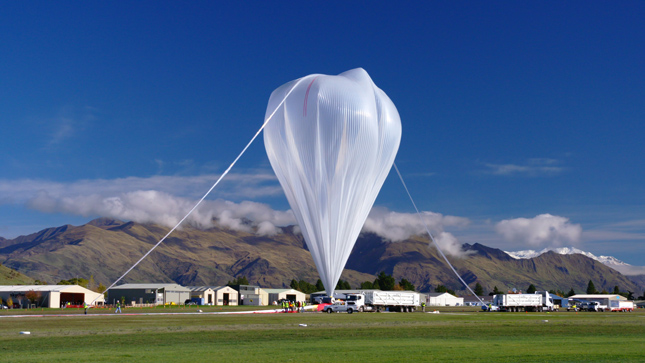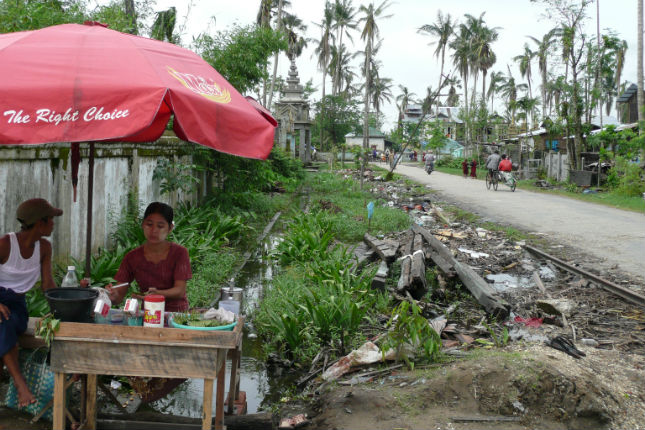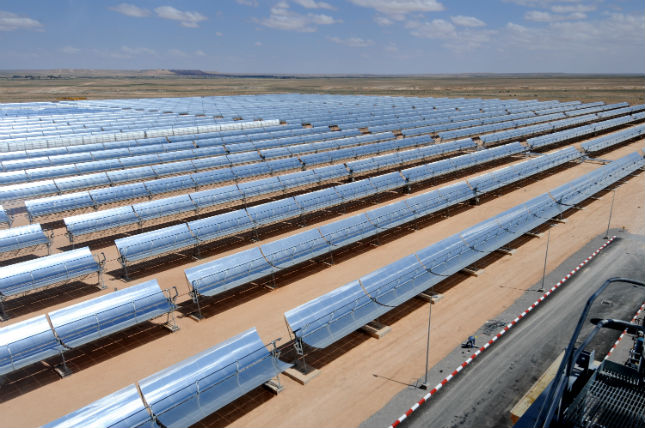-
Scaling Up Global Healthcare for Women, Children, and Families
›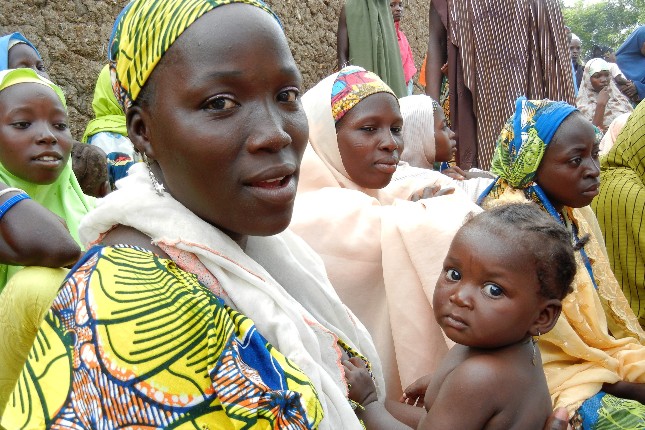
“We are seeing increasingly self-reliant countries develop national health sector plans solidly grounded on technical evidence,” said Dr. Jim Ricca of the United States Agency for International Development (USAID)’s flagship Maternal and Child Survival Program (MCSP) at a recent Wilson Center event. Expanding successful reproductive, maternal, newborn, child, and adolescent healthcare (known as RMNCAH) interventions to the national level could make a significant contribution to meeting the 2030 Sustainable Development Goals for mortality reduction, he said.
-
Water, Food, and Women: Top 5 Posts for April 2018
›
Severe water shortages in Cape Town, South Africa, are a signal of what’s to come for other rapidly expanding cities. “We will have more and more events like what happened in Cape Town as populations grow and water demand grows,” said Eric Viala, Director and Chief of Party of the Sustainable Water Partnership, in New Security Beat’s top post for April.
-
Respect for Creation: Leaders and Religious Groups Confront Climate Change in the Caribbean and South Pacific Islands
›
Climate change is “unfolding as we speak,” said John Agard, professor of Tropical Island Ecology at the University of the West Indies (UWI) at a recent public forum on island nations hosted in Trinidad by UWI’s Institute of International Relations. The “close coupling of terrestrial, coastal, and marine systems” in islands “results in fast-spreading impacts across systems,” said Roger-Mark De Souza¹, formerly the director of population, environmental security, and resilience for the Wilson Center, which partnered with UWI and American University’s Center for Latin American and Latino Studies to organize the event.
-
Ripple Effects: Sharing Water and Building Peace in the Jordan River Valley
›
In the war-torn Jordan River Valley, we can meet the “strategic objective of reducing conflict by promoting cooperation on shared waters,” said former defense official Sherri Goodman at a recent Wilson Center event on environmental peacebuilding. Even in the midst of political disputes, Jordanians, Israelis, and Palestinians must work together to manage the scarce supplies of clean water to protect their health, their economies, and their security.
-
Sustainable Water, Resilient Communities: The Problem of Too Much Water
›From the Wilson Center // Water Security for a Resilient World // December 12, 2017 // By Julianne Liebenguth
“Floods are one of many factors that keep massive amounts of the population in poverty and always on the brink of disaster,” said Eric Viala at the second event in a four-part series on water security organized by the Wilson Center in cooperation with the Sustainable Water Partnership, which Viala directs. Panelists at the event discussed the impact of intense flooding on vulnerable communities and proposed innovative and collaborative approaches to reducing their risks in the face of disasters.
-
Climate Engineering: Innovative Solution or Ethical Dilemma?
›
“Climate engineering can be a way to build a better world,” said Katharine Mach, a senior research scientist at Stanford University during a recent virtual workshop on the promises and pitfalls of climate engineering held by the Institute on Science for Global Policy, in partnership with the Forum for Climate Geoengineering Assessment at American University, and the School of Sustainability at Arizona State University.
-
TOP 5 Posts for November 2017
›
Preparing for natural disasters might help unlock pathways to conflict prevention, write Florian Krampe and Roberta Scassa in New Security Beat’s most read story last month. They make the case for investing in disaster risk reduction at the city level to manage localized risk and empower communities to peacefully respond to crises.
-
Building Stability in the Middle East: Defining a Transatlantic Agenda for Climate Resilience
›
Climate change can undermine stability in the Middle East and North Africa, where both the United States and Europe have critical foreign policy and security interests. The Middle East and North Africa (MENA) region “is impacted by climate and resource scarcity risks now, in the medium, and in the long term,” said Nick Mabey, director and chief executive of the environmental think tank E3G, during a recent Wilson Center event on building climate resilience in MENA countries. “It’s a region that is highly vulnerable to climate change,” said Mabey, and “also incredibly vulnerable to global systems.”
Showing posts by Julianne Liebenguth.


